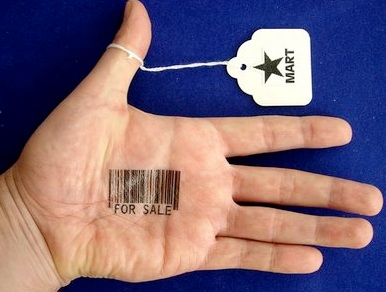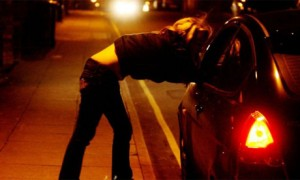The United States has been working to combat modern day slavery, human trafficking, by passing the Trafficking Victims Protection Act (TVPA) of 2000 and subsequent reauthorizations. This valuable piece of legislation provides a sturdy legal platform for federal cases, but what does this mean for most the traffickers around the nation? A majority of cases are tried at the state level, and some states do not have laws to adequately prosecute a trafficker. This means in certain states traffickers are evading significant sentences and financial penalties, making the crime seem more profitable than punishable.
This is what Shared Hope is working to change through the Protected Innocence Initiative. The Legislative Framework measures state law against the federal standard to certify that every state has an equal ability to impose significantly high penalties for traffickers. It outlines that the use of the Internet to entice, recruit or sell a minor and creating an d distributing child pornography should carry high penalties. State’s laws are analyzed and graded to ensure that convicted traffickers must register as sex offenders and parental rights should be terminated for convicted sex traffickers.
d distributing child pornography should carry high penalties. State’s laws are analyzed and graded to ensure that convicted traffickers must register as sex offenders and parental rights should be terminated for convicted sex traffickers.
State Report Cards will be released publically on December 1. Please tune in to our blog this week to learn more about remaining components of the Protected Innocence Initiative. Check out our event calendar for details of the release.
 Stories like Kelly’s have become all too common in today’s society. Through the Protected Innocence Initiative, Shared Hope International seeks to help victims like Kelly by making sure the laws properly criminalize domestic minor sex trafficking.
Stories like Kelly’s have become all too common in today’s society. Through the Protected Innocence Initiative, Shared Hope International seeks to help victims like Kelly by making sure the laws properly criminalize domestic minor sex trafficking. Johns reported that they purchased sex because they were guaranteed submissiveness on the part of the prostituted woman or child. The distinct power imbalance and lack of relationship obligation was noted as a driving factor for those who purchase sex. Many of the johns reported having girlfriends or wives, and say they purchase sex to do the “dirty” sex acts that they would not do with their significant others because these acts could cause her to lose her self esteem. Though sex buyers recognize these distinctions, many commented that the sense of entitlement and degradation towards woman that develops from purchasing sex taints other relationships and their general attitude towards women.
Johns reported that they purchased sex because they were guaranteed submissiveness on the part of the prostituted woman or child. The distinct power imbalance and lack of relationship obligation was noted as a driving factor for those who purchase sex. Many of the johns reported having girlfriends or wives, and say they purchase sex to do the “dirty” sex acts that they would not do with their significant others because these acts could cause her to lose her self esteem. Though sex buyers recognize these distinctions, many commented that the sense of entitlement and degradation towards woman that develops from purchasing sex taints other relationships and their general attitude towards women.
 However, how can attitudes truly be converted when services created to protect DMST victims carry names that are inherently accusatory? For example, in South Florida, the FBI task force, which responds to DMST victims, is called “Minor Vice Task Force.” Vice is an umbrella term for crimes involving actions considered by their very nature immoral. Thus, this title implies that the focus of this task force is minors engaging in “immoral” crimes, crimes they are forced to commit as trafficking victims. Other examples include the National Innocence Lost Task Force, which although represents a step in the right direction of viewing the trafficked minor as a victim, may be interpreted by those who are served by that force as having lost all their innocence, and still fails to maintain neutrality despite well meaning efforts. Although prostitution is legally a crime, the San Francisco Task Force on Prostitution and Vallejo Prostitution Task Force titles reinforce the idea that prostitutes are the real criminals, which perpetuates victim blaming, rather than revealing that purchasing young girls for sex as the true crime. It seems odd that the names of some human trafficking task forces would focus on the victim of the crime, considering that many other task forces, such as drug task forces, maintain a sense of neutrality about the purpose of the task force.
However, how can attitudes truly be converted when services created to protect DMST victims carry names that are inherently accusatory? For example, in South Florida, the FBI task force, which responds to DMST victims, is called “Minor Vice Task Force.” Vice is an umbrella term for crimes involving actions considered by their very nature immoral. Thus, this title implies that the focus of this task force is minors engaging in “immoral” crimes, crimes they are forced to commit as trafficking victims. Other examples include the National Innocence Lost Task Force, which although represents a step in the right direction of viewing the trafficked minor as a victim, may be interpreted by those who are served by that force as having lost all their innocence, and still fails to maintain neutrality despite well meaning efforts. Although prostitution is legally a crime, the San Francisco Task Force on Prostitution and Vallejo Prostitution Task Force titles reinforce the idea that prostitutes are the real criminals, which perpetuates victim blaming, rather than revealing that purchasing young girls for sex as the true crime. It seems odd that the names of some human trafficking task forces would focus on the victim of the crime, considering that many other task forces, such as drug task forces, maintain a sense of neutrality about the purpose of the task force.





